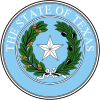
The Fourteenth Amendment to the United States Constitution was adopted on July 9, 1868, as one of the Reconstruction Amendments. Usually considered one of the most consequential amendments, it addresses citizenship rights and equal protection under the law and was proposed in response to issues related to formerly enslaved Americans following the American Civil War. The amendment was bitterly contested, particularly by the states of the defeated Confederacy, which were forced to ratify it in order to regain representation in Congress. The amendment, particularly its first section, is one of the most litigated parts of the Constitution, forming the basis for landmark Supreme Court decisions such as Brown v. Board of Education (1954) regarding racial segregation, Roe v. Wade (1973) regarding abortion, Bush v. Gore (2000) regarding the 2000 presidential election, Obergefell v. Hodges (2015) regarding same-sex marriage, and Students for Fair Admissions v. Harvard (2023) regarding race-based college admissions. The amendment limits the actions of all state and local officials, and also those acting on behalf of such officials.

The Antiterrorism and Effective Death Penalty Act of 1996 (AEDPA), Pub. L.Tooltip Public Law 104–132 (text)(PDF), 110 Stat. 1214, enacted April 24, 1996, was introduced to the United States Congress in April 1995 as a Senate Bill. The bill was passed with broad bipartisan support by Congress in response to the bombings of the World Trade Center and Oklahoma City. It was signed into law by President Bill Clinton.
In American political discourse, states' rights are political powers held for the state governments rather than the federal government according to the United States Constitution, reflecting especially the enumerated powers of Congress and the Tenth Amendment. The enumerated powers that are listed in the Constitution include exclusive federal powers, as well as concurrent powers that are shared with the states, and all of those powers are contrasted with the reserved powers—also called states' rights—that only the states possess.
An administrative law judge (ALJ) in the United States is a judge and trier of fact who both presides over trials and adjudicates claims or disputes involving administrative law. ALJs can administer oaths, take testimony, rule on questions of evidence, and make factual and legal determinations.
The Speech or Debate Clause is a clause in the United States Constitution. The clause states that "The Senators and Representatives" of Congress "shall in all Cases, except Treason, Felony, and Breach of the Peace, be privileged from Arrest during their attendance at the Session of their Respective Houses, and in going to and from the same; and for any Speech or Debate in either House, they shall not be questioned in any other Place."
The Origination Clause, sometimes called the Revenue Clause, is Article I, Section 7, Clause 1 of the U.S. Constitution. The clause says that all bills for raising revenue must start in the U.S. House of Representatives, but the U.S. Senate may propose or concur with amendments, as in the case of other bills.
Medellín v. Texas, 552 U.S. 491 (2008), was a decision of the United States Supreme Court that held even when a treaty constitutes an international commitment, it is not binding domestic law unless it has been implemented by an act of the U.S. Congress or contains language expressing that it is "self-executing" upon ratification. The Court also ruled that decisions of the International Court of Justice are not binding upon the U.S. and, like treaties, cannot be enforced by the president without authority from Congress or the U.S. Constitution.

Paul George Cassell is a former United States district judge of the United States District Court for the District of Utah, who is currently the Ronald N. Boyce Presidential Professor of Criminal Law and University Distinguished Professor of Law at the S.J. Quinney College of Law at the University of Utah. He is best known as an expert in, and proponent of, victims' rights.

The legality of abortion in the United States and the various restrictions imposed on the procedure vary significantly depending on the laws of each state or other jurisdiction. Some states prohibit abortion at all stages of pregnancy with few exceptions, others permit it up to a certain point in a woman's pregnancy, while others allow abortion throughout a woman's pregnancy. In states where abortion is legal, several classes of restrictions on the procedure may exist, such as parental consent or notification laws, requirements that patients be shown an ultrasound before obtaining an abortion, mandatory waiting periods, and counseling requirements.
This is a list of notable events in the history of LGBT rights that took place in the year 2010.

The Support Our Law Enforcement and Safe Neighborhoods Act is a 2010 legislative Act in the U.S. state of Arizona that was the broadest and strictest anti-illegal immigration law in the United States when passed. It has received international attention and has spurred considerable controversy.

Arizona v. United States, 567 U.S. 387 (2012), was a United States Supreme Court case involving Arizona's SB 1070, a state law intended to increase the powers of local law enforcement that wished to enforce federal immigration laws. The issue is whether the law usurps the federal government's authority to regulate immigration laws and enforcement. The Court ruled that sections 3, 5(C), and 6 of S. B. 1070 were preempted by federal law but left other parts of the law intact, including a provision that allowed law enforcement to investigate a person's immigration status.
The Supremacy Clause of the Constitution of the United States establishes that the Constitution, federal laws made pursuant to it, and treaties made under its authority, constitute the "supreme Law of the Land", and thus take priority over any conflicting state laws. It provides that state courts are bound by, and state constitutions subordinate to, the supreme law. However, federal statutes and treaties must be within the parameters of the Constitution; that is, they must be pursuant to the federal government's enumerated powers, and not violate other constitutional limits on federal power, such as the Bill of Rights—of particular interest is the Tenth Amendment to the United States Constitution, which states that the federal government has only those powers that are delegated to it by the Constitution.
Since the passage of the Affordable Care Act (ACA), there have been numerous actions in federal courts to challenge the constitutionality of the legislation. They include challenges by states against the ACA, reactions from legal experts with respect to its constitutionality, several federal court rulings on the ACA's constitutionality, the final ruling on the constitutionality of the legislation by the U.S. Supreme Court in National Federation of Independent Business v. Sebelius, and notable subsequent lawsuits challenging the ACA. The Supreme Court upheld ACA for a third time in a June 2021 decision.
Deferred Action for Parents of Americans and Lawful Permanent Residents (DAPA), sometimes called Deferred Action for Parental Accountability, was a planned United States immigration policy to grant deferred action status to certain undocumented immigrants who have lived in the United States since 2010 and have children who are either American citizens or lawful permanent residents. It was prevented from going into effect. Deferred action would not be legal status but would come with a three-year renewable work permit and exemption from deportation. DAPA was a presidential executive action, not a law passed by Congress.
United States v. Texas, 579 U.S. ___ (2016), is a United States Supreme Court case regarding the constitutionality of the Deferred Action for Parents of Americans (DAPA) program.

James Wesley Hendrix is a United States district judge of the United States District Court for the Northern District of Texas and former assistant United States attorney for the same district. He presides over the Northern District's Lubbock, Abilene, and San Angelo Divisions, which account for 47 of the Northern District's 100 counties, and span an area larger than Pennsylvania.

The 2020 United States redistricting cycle is in progress following the completion of the 2020 United States census. In all fifty states, various bodies are re-drawing state legislative districts. States that are apportioned more than one seat in the United States House of Representatives are also drawing new districts for that legislative body.

The Texas Heartbeat Act, Senate Bill 8, is an act of the Texas Legislature that bans abortion after the detection of embryonic or fetal cardiac activity, which normally occurs after about six weeks of pregnancy. The law took effect on September 1, 2021, after the U.S. Supreme Court denied a request for emergency relief from Texas abortion providers. It was the first time a state has successfully imposed a six-week abortion ban since Roe v. Wade, and the first abortion restriction to rely solely on enforcement by private individuals through civil lawsuits, rather than having state officials enforce the law with criminal or civil penalties. The act authorizes members of the public to sue anyone who performs or facilitates an illegal abortion for a minimum of $10,000 in statutory damages per abortion, plus court costs and attorneys' fees.

United States v. Texas, et al. is a court case in the United States Court of Appeals for the Fifth Circuit regarding Texas Senate Bill 4, a statute allowing state officials to arrest and deport migrants. The Biden administration, the city of El Paso, and two civil rights organizations petitioned the Supreme Court to stay the application Texas Senate Bill 4, which was denied on March 19, 2024. Texas governor Greg Abbott argued that the bill was supported by a clause in the Constitution forbidding states from declaring war unless an invasion occurs.










